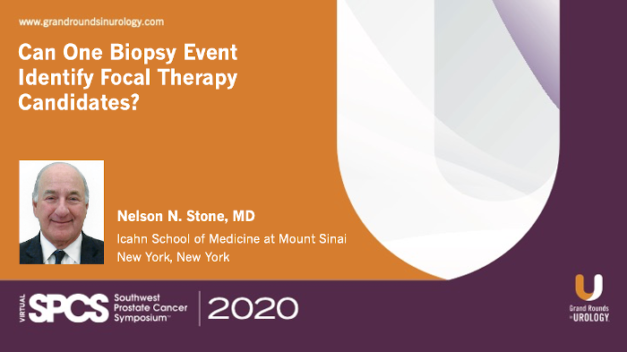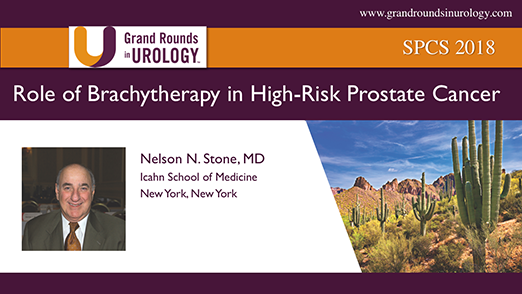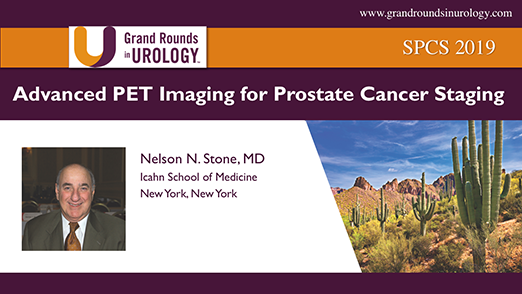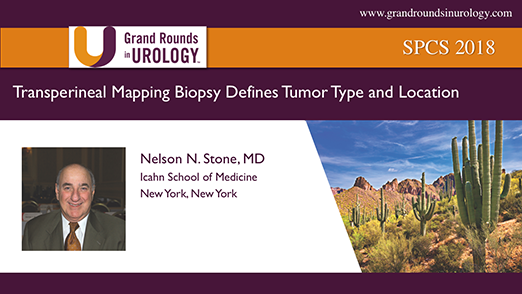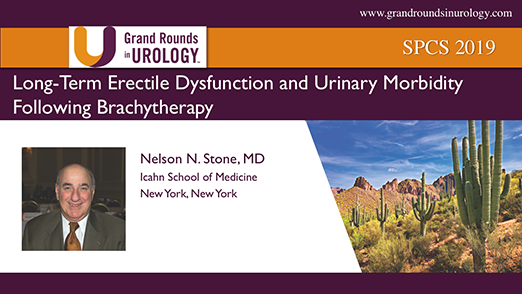Can One Biopsy Event Determine Type and Amount of Focal Therapy Treatment?
Nelson N. Stone, MD, Professor of Urology, Radiation Oncology, and Oncological Sciences at the Icahn School of Medicine at Mount Sinai and at the Derald H. Ruttenberg Cancer Center at Mount Sinai argues for the use of Transperineal Mapping Biopsy (TPMB), and against the use of strict criteria and cursory cancer identification methods for finding Focal Therapy eligible patients. He expresses a clinical need for a process that identifies Focal Therapy candidates and lists which portions of the prostate require treatment. He suggests that TPMB can fulfill these goals. Dr. Stone summarizes a review of the evidence for using focal therapy for the treatment of prostate cancer and found that despite at least 50% of patients being Focal Therapy eligible only a minority of patients actually receive the therapy. He critiques a study on Focal Therapy eligibility determined by MRI/US fusion biopsy on the basis of using too strict of criteria for selecting patients and in consideration of the possibility of missing many patients due to not using a biopsy. Dr. Stone discusses several other studies that depict MRI as unreliable in accurately identifying Focal Therapy patients compared to TPMP due to the lower accuracy of MRI across the prostate.
Read More
